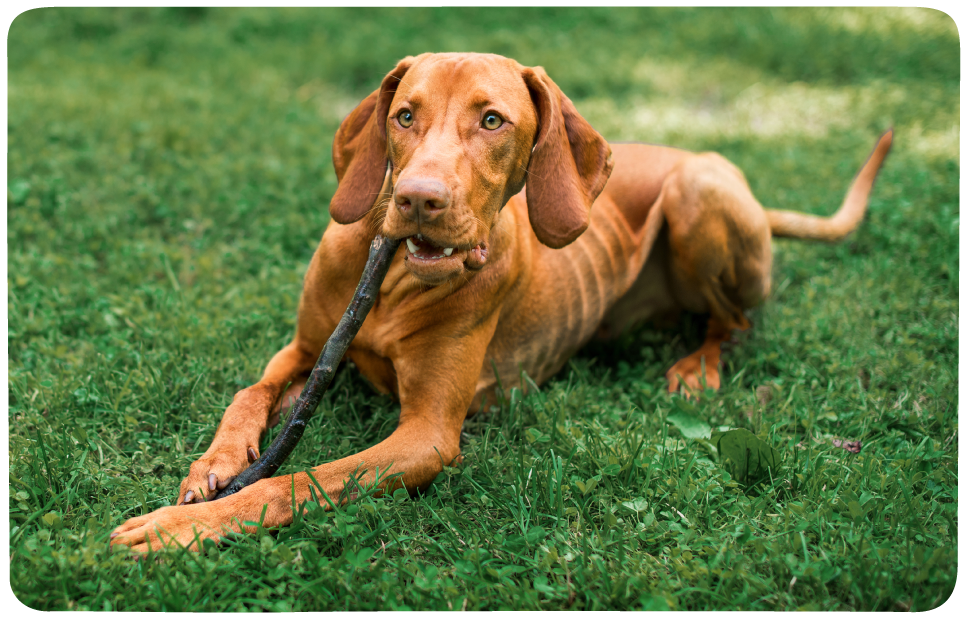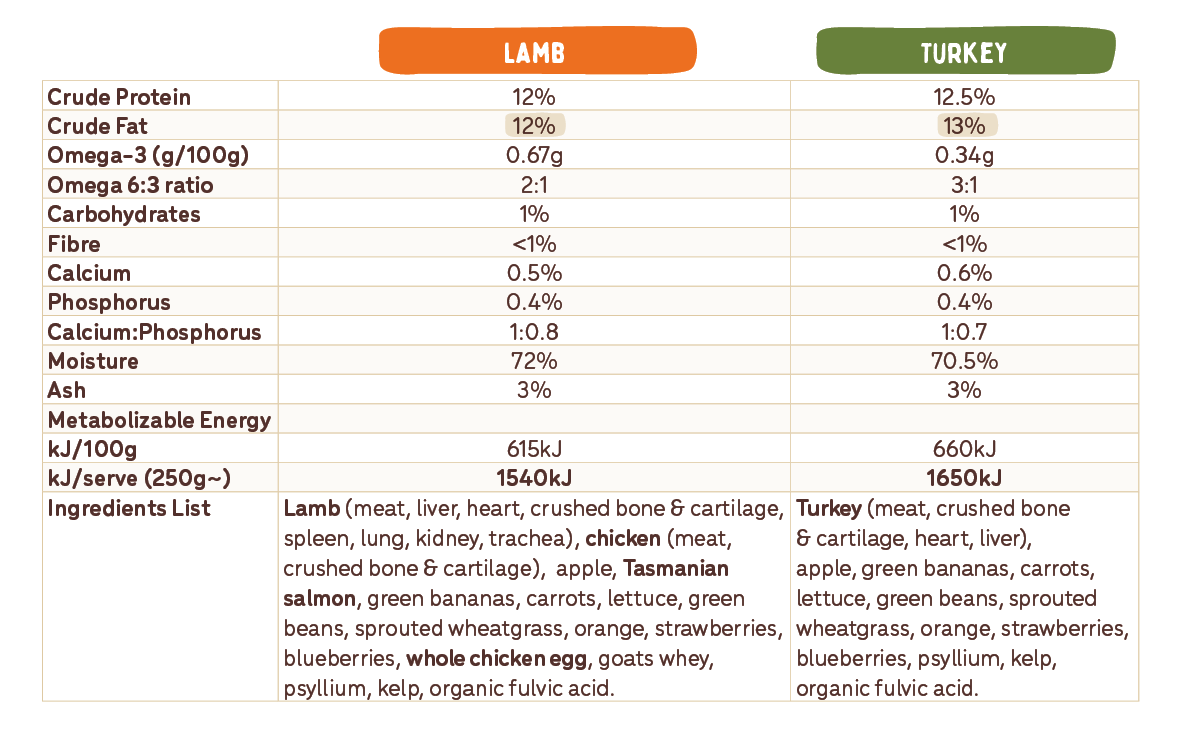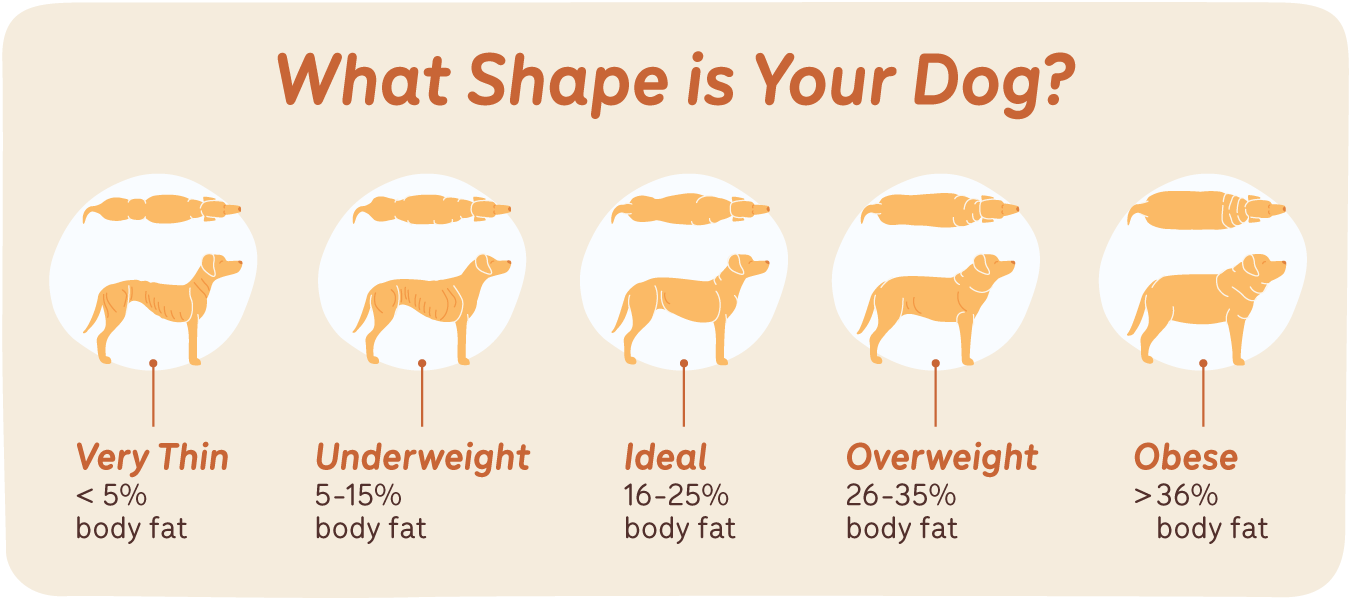How to Help Your Dog Gain Weight the Healthy Way


If your dog is underweight, it can be stressful and confusing to know how to help them return to a healthy body condition. Whether it's due to recovery from illness or surgery, stress after recent adoption, or an underlying health issue, supporting healthy weight gain needs to be approached thoughtfully, with nutrition at the heart of that process.
In this article, we explore why some dogs struggle to maintain weight, the role of gut health and digestion, and practical strategies to help dogs gain weight safely and sustainably, with a focus on fresh, whole foods.
Common Reasons for Being Underweight
There are many potential reasons why a dog might be underweight:
- Dogs recovering from illness or surgery often experience appetite loss and muscle wasting.
- Stress from rehoming, travel, or household changes can suppress appetite and impact digestion.
- Some breeds have naturally high metabolisms and simply burn more calories.
- Dogs with digestive dysfunction may not be absorbing nutrients effectively, even with a good diet.
Take a Digestive History
A detailed gut health history can offer important clues and is helpful to gather before visiting your vet. Is your dog experiencing vomiting, diarrhoea, soft stools, constipation, excessive gas, or bloating? Have they had frequent antibiotics, food intolerances, or gastrointestinal infections? All of these factors affect digestion and nutrient absorption.
Start with a Veterinary Check-Up
Once you’ve gathered a thorough digestive history, a veterinary exam can help identify or rule out medical causes of weight loss. Your vet may screen for parasites, assess pain (from dental disease, arthritis, or internal discomfort), and run blood tests to evaluate organ function and hormone levels. While hyperthyroidism is more common in cats, dogs can occasionally be affected. Hypothyroidism, which is more typical in dogs, usually causes weight gain, but any unexpected changes in weight warrant investigation.
The Benefits of Fresh Feeding
Fresh, whole food diets are rich in bioavailable nutrients, moisture, natural enzymes, and healthy fats. They support tissue repair, muscle growth, and energy production, especially in dogs recovering from illness or those with digestive sensitivities.
Compared to processed dry food, fresh diets more closely mimic what dogs are biologically adapted to eat - which can make a noticeable difference in appetite, energy levels, and long-term condition. Whole foods also tend to deliver nutrients in their natural matrix, often accompanied by cofactors that aid absorption and utilisation. In contrast, ultra-processed foods may contain synthetic additives or isolated nutrients that aren’t always absorbed or metabolised as efficiently by the body.
Choosing Higher-Fat Proteins
If your dog needs to gain weight, choosing proteins that naturally contain more fat can help increase calorie intake without needing to feed excessive volume. Some good options include:
- Lamb
- Duck
- Certain turkey blends
Leaner proteins like fish or kangaroo on its own may be more appropriate for dogs needing lower fat or with sensitive digestion.

Feed More Often
Increasing feeding frequency can be just as important as what you feed. Offering three to four smaller meals per day, rather than one or two larger ones, can encourage greater overall intake, be easier on digestion, and help maintain stable energy throughout the day. It also helps prevent bloating or meal aversion, particularly in dogs with small appetites or those recovering from illness.
Support the Gut for Nutrient Absorption
Even a nutrient-rich diet won’t help if your dog isn’t digesting and absorbing it effectively. The gut microbiome plays a critical role in digestion, immunity, and nutrient uptake.
To optimise gut health, consider probiotics to support microbial diversity, digestive enzymes to improve nutrient breakdown, and gentle gut-soothing supports like bone broth, fermented vegetables, or slippery elm.
The Stress-Gut Axis
Chronic stress alters the gut-brain connection, impacting motility, enzyme production, and microbiome balance. Dogs that have been recently rehomed, experienced trauma, or live with persistent anxiety often struggle with gut health as a result.
Supporting emotional wellbeing with calming routines and enrichment can have measurable impacts on appetite and digestion.
What the Research Says
Scientific studies continue to highlight the relationship between gut health and weight. Thomson et al. (2022) found notable differences in the gut microbiota between obese and normal-weight dogs, suggesting microbial balance plays a role in regulating body condition. Similarly, Barko et al. (2018) showed that diet significantly affects the gastrointestinal microbiome, which in turn influences health and nutrient absorption.
Track Progress
Weight gain should be gradual and steady. As your dog builds condition, you might notice their ribs and hips becoming less prominent, their coat improving, and energy increasing. Weekly weight checks or body condition photos can help track changes over time.

If no improvement is seen after a few weeks despite appropriate feeding and support, recheck with your vet to consider further testing or refine your approach.
Final Thoughts
Helping a dog gain weight isn’t just about feeding more, it’s about feeding smarter. With the right foods, gut support, and stress management, most dogs can regain healthy body condition, rebuild strength, and thrive.
About the Author - Dr. Nicole Rous

Dr. Nicole Rous completed her degree with Honours from the University of Sydney in 2008. She initially worked in the UK before returning to small animal practice in Melbourne, Australia. Dr. Nicole has a keen interest in animal reproduction and has been granted Membership with the Australian and New Zealand College of Veterinary Scientists in this specialty. She is also passionate about complementary therapies such as massage and enjoys discussing ways to enhance pets' overall well-being and quality of life.
In August 2021, Dr. Nicole joined the Mont Albert Veterinary Surgery team as a director and continues to provide exceptional care to her patients. She is dedicated to utilising her knowledge and experience to assist pets in living longer, healthier, and happier lives.
Dr. Nicole's commitment to providing natural and holistic health practices for pets inspired her to establish Shy Tiger, a company that offers natural pet products made from premium ingredients sourced primarily from Australian farms and producers. Her expertise in natural health practices and dedication to providing excellent care to her patients make her a reliable partner for pet owners in Melbourne and beyond.
References
Thomson, Pamela, Rodrigo Santibáñez, Camila Rodríguez-Salas, Carla Flores-Yańez, and Daniel Garrido. "Differences in the Composition and Predicted Functions of the Intestinal Microbiome of Obese and Normal Weight Adult Dogs." PeerJ 10 (2022): e12695. https://doi.org/10.7717/peerj.12695
Barko, P.C., M.A. McMichael, K.S. Swanson, and D.A. Williams. "The Effects of Nutrition on the Gastrointestinal Microbiome of Cats and Dogs: Impact on Health and Disease." Frontiers in Microbiology 9 (2018): 1266. https://doi.org/10.3389/fmicb.2018.01266
